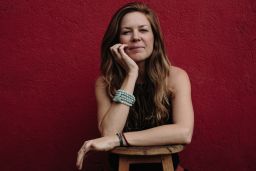Editor’s Note: Editor’s Note: Susannah Rigg is a freelance writer based in Mexico City. The views in this commentary are her own.
Story highlights
Susannah Rigg: Mexicans took to the streetsto assist in earthquake recovery efforts
This solidarity is what drew me to this beautiful country and inspired me to volunteer
When the earthquake struck, I was working in a bookshop café in Roma Norte, a bustling neighborhood in Mexico City. As I tried to exit the building, books came flying past me. I have been in earthquakes in Mexico before – but this felt very different. It was stronger and more violent. The ground swayed for a long time after the heavy shaking stopped.
Once outside, and trembling in fear, I noticed people running along the adjoining street. I presumed they, like me, were running away from danger. Later I discovered they were running toward it.

A building just around the corner from where I stood had collapsed and everyone was running to help. This help continued through the afternoon and into the night with residents grabbing shovels and picks and forming human chains to remove rubble and rescue people trapped underneath.
The display of solidarity is something that defines Mexico for me. As a British transplant, I am in awe of everyone’s commitment to assist in the recovery efforts – even if it means potentially endangering their own lives. This commitment has reaffirmed why I have chosen this country as my home for the last seven years and why I was inspired to join the relief efforts the next day.
I had tried to assess the situation around me and reach those near and dear to me. I had no signal and couldn’t reach anyone, but my friend Ricardo de los Rios came looking for me and found me close to my apartment. We consoled each other for a few minutes before he set off on his bike to join a rescue team at a collapsed apartment building.
He and other volunteers worked into the night clearing rubble and traversing the vast urban sprawl with medical supplies for those most in need. At around 11 p.m., roughly 9 hours after the earthquake devastated the city, he messaged me to tell me that they had found someone alive. “It is so harrowing seeing everyday items in the rubble,” he told me later that night. “We saw plates that hadn’t broken, children’s school notebooks and a man’s shirt.”
As electricity in the city came back on at varying times through the night and people opened up their internet for public use, messages from victims trapped in different locations began appearing on social media. This morning, locals – myself included – headed to those locations.
Before I arrived on site, I went to buy medical supplies such as bandages, syringes and gloves, as well as toilet paper, sanitary towels and diapers that we were being told were desperately needed.
When I arrived at the collection site near a collapsed building in Roma Norte, there were already hundreds of people, with more and more arriving to assist as the morning wore on. Some were bringing supplies, while others arrived with hard hats and fluorescent jackets ready to help clear the rubble. Volunteers loaded thousands of bottles of water onto trucks that were to be taken around the city and beyond to the state of Morelos, which was also badly hit by the quake.
I walked to a number of different collection areas in the neighborhood finding out what supplies they needed and sharing that information on social media. Then I headed back to the medical supply store, and left a copy of that information with them. They assured me that they would help to get all the needs met.
Stopping to top up my sugar levels and to cool off a little from the intense sun, I bought a fresh orange juice from a street vendor. We got talking about the solidarity we were seeing all around. “Us regular Mexicans,” he said with pride. “We may not have education, but when people are in need, we are right there.”
And it seems that this solidarity is exactly what’s keeping Mexico going. In fact, according to many friends in the city there are so many people volunteering that in certain areas willing volunteers are being told that more help is not needed – the necessary rescue personnel are already at various recovery locations across the city.
It is hard to know what the city and indeed the country will need in the weeks and months to come. But, as the immediate urgency declines, Mexicans are going to have to sustain these levels of solidarity to help each other overcome the physical and mental trauma that this quake has triggered.


